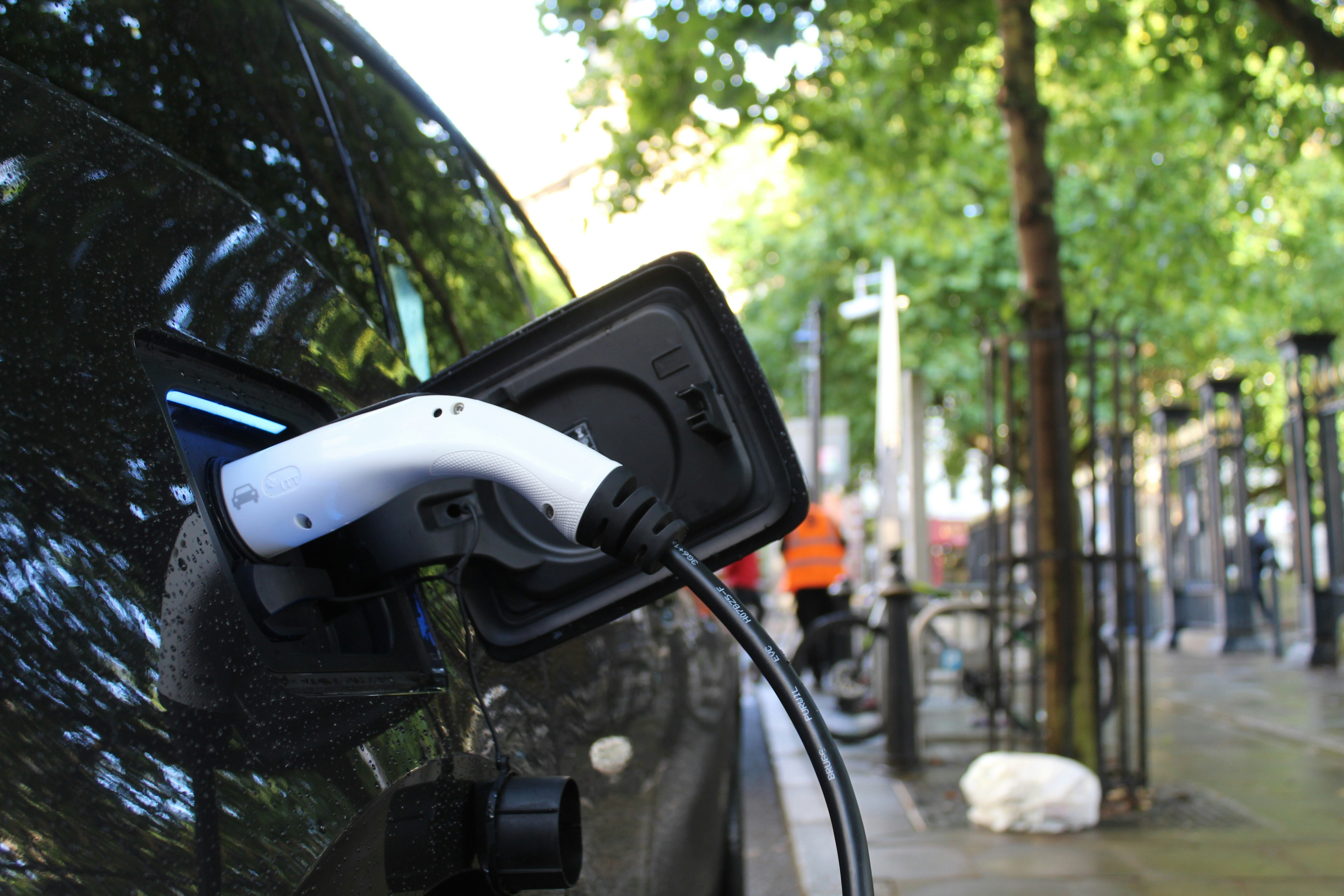
If you drive electric, then having your own charging station is extremely convenient. But before you have one installed, you obviously want to know what you are getting into. How do you choose and how do you do it safely? Start your search with these tips.
More than 120,000 new electric cars were registered in Belgium in 2024, up 36% on the previous year. With this increase in electric cars, more and more charging points are also popping up around us. Last year, as many as 72% were added. Are you also considering installing one (or a few), at your home or commercial building? Then take these precautions.
Home charging: charging pole over power socket
A charging station charges up to five times faster than an ordinary socket. Moreover, having its own circuit with circuit breaker makes it a lot safer. Charging via a wall socket is possible, but be careful. Use a separate, properly fused socket with grounding and avoid extension cords or power strips to avoid overheating.
Is your car charging on the public road in front of your home or business? Then find out whether your charging cable is allowed on the pavement. Some municipalities require you to shield it with a cable duct or mat, so pedestrians cannot trip over it.
Important!
- Is your home or commercial building located in Brussels or Wallonia? Then you are obliged to declare your private charging station to your electricity network operator.
- As a small business, you can still get a limited tax benefit when investing in charging stations in 2025. So be sure to check with your accountant to see if you qualify.
Own charging station? Pay attention to this before you install it
Are you going to install a charging station at your home or commercial building? Then consider these 3 aspects:
Where exactly will the charging station be located?
Choose a place where you can park your electric car close to the charging point, e.g. in the garage or driveway. The distance between the fuse box and the charging station plays into the price of the installation: the closer to the fuse box, the cheaper.
Is the charging station compatible with your existing electrical system and your car?
There are different types: with single-phase or with three-phase connection. Your charging station must be compatible with the maximum charging capacity of your electric car if you want to charge it at its fastest.
Which charging station suits you and your budget?
One on the wall or on a pole? A 'smart' charging station or a basic model?
Own charging station? Take no chances
Having your own charging station comes with some specific risks. But if you know them, you can stay ahead of them
Fire hazard
Provide free space around the charge point and keep flammable materials away. If you use an ordinary socket: only charge with a charging cable intended for your electric car and better not use an extension cable. Do you install several chargers, e.g. on company premises? Please indicate for which cars each charger is suitable.
Electric shock
The high voltage needed to charge an electric car can be dangerous. So regularly check your charging station, the connection to your car and the cable, and have them repaired immediately if you notice any damage.
Theft
Charging points and cables are expensive and contain valuable metals such as copper, making them attractive to thieves. Avoid coming across your own charging cable on a second-hand website and store it safely when not in use. Also think carefully about the exact location of your charge point: out of sight is safer.
Cyber attacks
You may not realise it, but smart charge points are connected to the internet and can therefore be vulnerable to cyber attacks. Protect your charging point with strong passwords and two-factor authentication so that it does not become a gateway for cybercriminals to access your data or other smart devices.
To avoid problems, we recommend having your charging station installed by a professional. Moreover, independent inspection is required by law: like any electrical installation, it must comply with the conditions of the General Regulations on Electrical Installations (AREI).
Is your charging station properly insured?
If you install a charging station on private property, you do not need to take out separate insurance.
However, you would do well to inform your insurance agent. Then we will check whether adjustments are needed to your fire insurance or home policy (if a problem with the charging station damages your building), your car insurance (e.g. in case of theft of your charging cable) or your cyber policy (in case of a cyber attack via your charging station or car).
Are your policies still on point?
With a well-insured charging station, you will enjoy all the benefits of electric driving carefree.
